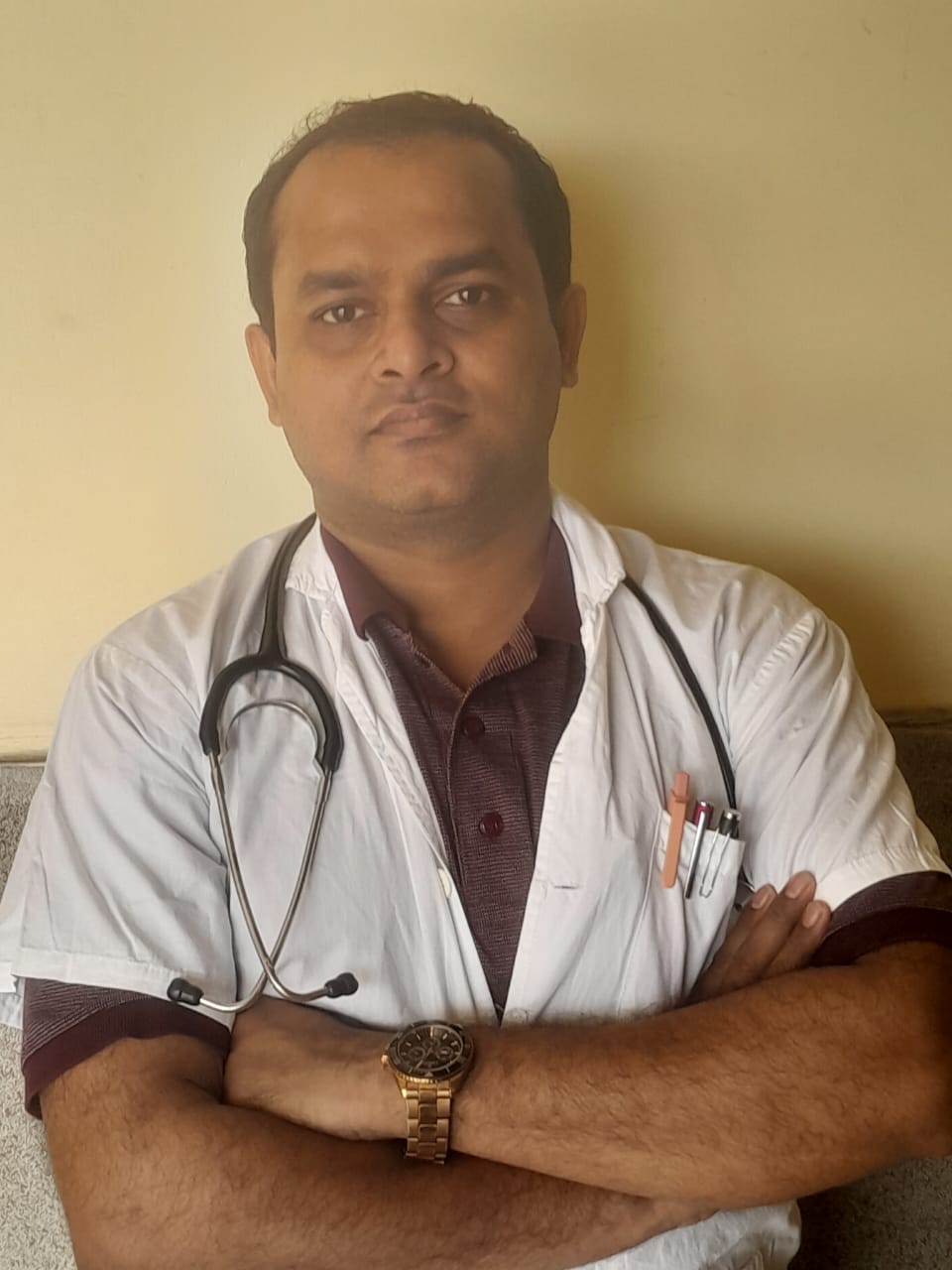Reasons for Difficulty in Achieving Pregnancy
Know about the difficulty in achieving pregnancy, when it should be a concern, common reasons for difficulty, how to improve difficulty in both men and women and more.


Introduction
Trying to conceive can be an emotional journey, and facing difficulties in achieving pregnancy can be stressful for many couples. If you’ve been trying for a while without success, it’s important to understand that you’re not alone. Many couples experience challenges when trying to get pregnant. The good news is that with the right information and medical support, many of these issues can be addressed.
In this article, we’ll explore the common reasons for difficulty in achieving pregnancy, what you can do about it, and when to seek medical help.
Understanding Fertility: When Should You Be Concerned?
Fertility is the natural ability to conceive a child. While some couples get pregnant quickly, others may take longer. Doctors usually recommend seeking help if:
• You’re under 35 and have been trying for 12 months without success.
• You’re over 35 and have been trying for 6 months without success.
• You have known medical conditions (like PCOS, endometriosis, or irregular periods) that may affect fertility.
If you fall into any of these categories, it may be time to consult a fertility specialist.
Consult a Gynaecologist for Personalised Advice
Common Reasons for Difficulty in Pregnancy
There are several factors—both in men and women—that can affect fertility. Let’s look at the most common ones.
1. Female-Related Causes
A. Ovulation Disorders
Ovulation (the release of an egg from the ovary) is essential for pregnancy. Conditions that disrupt ovulation include:
• Polycystic Ovary Syndrome (PCOS) – A hormonal disorder causing irregular periods and cysts in the ovaries.
• Premature Ovarian Insufficiency (POI) – When ovaries stop functioning before age 40.
• Thyroid Disorders – Both hypothyroidism (underactive thyroid) and hyperthyroidism (overactive thyroid) can affect ovulation.
B. Fallopian Tube Blockage or Damage
Blocked or damaged fallopian tubes prevent sperm from reaching the egg or stop the fertilized egg from reaching the uterus. Causes include:
• Pelvic inflammatory disease (PID)
• Previous surgeries or infections (like chlamydia)
• Endometriosis
C. Uterine or Cervical Issues
• Fibroids or polyps – Non-cancerous growths in the uterus that can interfere with implantation.
• Cervical mucus problems – If mucus is too thick, sperm cannot travel through the cervix.
D. Age-Related Decline in Fertility
A woman’s fertility naturally declines with age, especially after 35, due to a decrease in egg quality and quantity.
2. Male-Related Causes
A. Low Sperm Count or Poor Sperm Motility
• Oligospermia (low sperm count) or azoospermia (no sperm) can reduce chances of conception.
• Poor sperm motility (movement) makes it harder for sperm to reach the egg.
B. Erectile Dysfunction or Ejaculation Problems
• Conditions like diabetes, stress, or hormonal imbalances can affect a man’s ability to ejaculate properly.
C. Varicocele (Enlarged Veins in the Testicles)
• This can increase testicular temperature, affecting sperm production.
3. Lifestyle & Environmental Factors
• Smoking & Alcohol – Both reduce fertility in men and women.
• Obesity or Underweight – Extreme weight can disrupt hormone balance.
• Stress – High stress levels can interfere with ovulation and sperm production.
• Exposure to Toxins – Chemicals, pesticides, and radiation can harm fertility.
4. Unexplained Infertility
In some cases, doctors cannot find a clear reason for infertility despite tests. This is called unexplained infertility, and treatments like fertility drugs or IVF may still help.
What Can You Do to Improve Fertility?
For Women:
• Track Your Ovulation – Use ovulation predictor kits or fertility apps.
• Maintain a Healthy Weight – Being overweight or underweight can impact hormone levels.
• Eat a Balanced Diet – Include folate, iron, and antioxidants (found in leafy greens, nuts, and fruits).
• Reduce Stress – Yoga, meditation, and relaxation techniques can help.
• Avoid Smoking & Alcohol – Both negatively impact fertility.
For Men:
• Wear Loose Underwear – Tight clothing can increase testicular temperature.
• Exercise Regularly – But avoid excessive cycling (can affect sperm production).
• Eat Sperm-Boosting Foods – Zinc (found in nuts, seeds, and seafood) and vitamin C (citrus fruits) help sperm health.
• Limit Alcohol & Quit Smoking – Both reduce sperm count and motility.
For Both Partners:
• Have Regular Intercourse – Every 2-3 days around ovulation increases chances.
• Get Checked for STIs – Untreated infections can cause fertility problems.
• Consult a Doctor Early – If you’ve been trying for a while, don’t hesitate to seek help.
When to See a Doctor?
If you’ve been trying to conceive without success, consider consulting a fertility specialist if:
• You’re under 35 and haven’t conceived after 1 year of trying.
• You’re over 35 and haven’t conceived after 6 months.
• You have irregular periods, painful periods, or known conditions like PCOS/endometriosis.
• Your partner has known sperm-related issues.
Fertility Tests Available
• For Women: Blood tests (hormone levels), ultrasound (ovary health), HSG (fallopian tube check).
• For Men: Semen analysis (sperm count, motility).
At Apollo 24|7, you can book consultations with fertility experts and get the right tests done to understand your fertility status.
Final Thoughts
Difficulty in achieving pregnancy can be frustrating, but many causes are treatable with medical help and lifestyle changes. The key is to stay informed, stay positive, and seek professional guidance when needed.
Consult a Gynaecologist for Personalised Advice
Consult a Gynaecologist for Personalised Advice

Dr. Mona Yadav
Obstetrician and Gynaecologist
19 Years • MBBS, MD (Obstetrics & Gynaecology)
Dombivli
Nulife multispeciality, Dombivli

Dr. Asha Rani Singh
Obstetrician and Gynaecologist
24 Years • MBBS DGO
Delhi
Dr Asha Rani Singh Clinic, Delhi

Dr. Parul Sharma
Obstetrician and Gynaecologist
8 Years • MBBS, MS (Obstetrics & Gynaecology)
New Delhi
THE DOCTORS NESST, New Delhi
Dr. K Anusha
Obstetrician and Gynaecologist
4 Years • MBBS, DGO
Yemmiganur
SRINIVASAA HOSPITAL, Yemmiganur

Dr. Tuhin Dutta
Obstetrician and Gynaecologist
15 Years • MBBS , DGO (Obstetrics & Gynaecology)
Kolkata
BIENETRE CLINIC, Kolkata
Consult a Gynaecologist for Personalised Advice

Dr. Mona Yadav
Obstetrician and Gynaecologist
19 Years • MBBS, MD (Obstetrics & Gynaecology)
Dombivli
Nulife multispeciality, Dombivli

Dr. Asha Rani Singh
Obstetrician and Gynaecologist
24 Years • MBBS DGO
Delhi
Dr Asha Rani Singh Clinic, Delhi

Dr. Parul Sharma
Obstetrician and Gynaecologist
8 Years • MBBS, MS (Obstetrics & Gynaecology)
New Delhi
THE DOCTORS NESST, New Delhi
Dr. K Anusha
Obstetrician and Gynaecologist
4 Years • MBBS, DGO
Yemmiganur
SRINIVASAA HOSPITAL, Yemmiganur

Dr. Tuhin Dutta
Obstetrician and Gynaecologist
15 Years • MBBS , DGO (Obstetrics & Gynaecology)
Kolkata
BIENETRE CLINIC, Kolkata


.webp)

